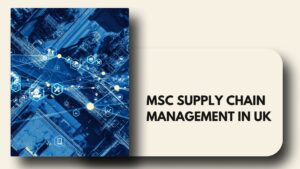- Economics graduates in Canada earn substantial salaries ranging from CAD 65,000 (₹41.4L) for Market Research Economists to CAD 93,000 (₹59.3L).
- Expenses in Canadian cities range from CAD 1,380–3,650 (₹87,975–₹2.3L) per month, including housing, food, transport, and utilities.
- Canada offers up to a 3-year Post-Graduation Work Permit, with pathways to permanent residency through Express Entry or PNPs.
- Why Choose Canada for Your Economics Education?
- Top Universities for Masters in Economics in Canada
- Eligibility Criteria for Masters in Economics in Canada
- Top Job Roles, Salaries & Career Scope After Masters in Economics
- Cost of Living in Canada for Indian Students
- Post-Study Work & PR Opportunities for Economics Graduates in Canada
- Key Takeaways
- FAQs

The Canadian economy continues to outperform global expectations in 2025, with GDP growth of 2.4% and unemployment rates hovering at historic lows of 5.1%. This economic stability has created a surplus demand for skilled economists across government agencies and financial institutions.
Your economics career could involve building models that guide billion-dollar policies, researching trade agreements, and gaining recognition in a country that values expertis
Why Choose Canada for Your Economics Education?
Canada’s economic landscape offers valuable opportunities for both theoretical learning and practical application. The country’s unique position as a resource-rich nation creates an ideal environment to understand complex economic relationships firsthand.
Top-Ranked Programs: Canadian universities like the University of Toronto (QS #21 globally in Economics) offer world-recognised economics degrees with strong industry connections.
Work During Studies: International students in Canada can work up to 24 hours/week during studies (increased from 20 hours in 2024) and full-time during breaks.
Post-Grad Work Permit: Students can qualify for up to 3 years of post-graduation work authorisation, opening routes to PR via Express Entry or Provincial Nominee Programs.
Bilingual Career Advantage: English-French skills unlock federal government roles and international positions with competitive annual salaries as high as CA$93,000 (₹59.3L).
Major Financial Centers: Access Toronto (TSX), Montreal (derivatives hub), and Vancouver (Asia-Pacific gateway) for internships and networking opportunities.
Top Universities for Masters in Economics in Canada
Most Masters in Economics courses in Canada are one year in duration, although some extend to two years. They combine coursework in advanced economic theory, econometrics, and specialized fields such as behavioural economics, development economics, or financial economics.
| QS World University Ranking 2025 (Economics & Econometrics) | University | Programs | Annual Tuition (CAD/INR) |
|---|---|---|---|
| 21 | University of Toronto | Master of Arts in Economics Master of Financial Economics | CAD 27,520 (₹17.5L) |
| 23 | University of British Columbia | MA in Economics | CAD 28,252 (₹18.0L) |
| 90 | McGill University | MA in Economics | CAD 27,010 (₹17.2L) |
| 139 | Université de Montréal | MA in Economics | CAD 23,088 (₹14.7L) |
| 156 | Queen's University at Kingston | MA in Economics | CAD 23,393 (₹14.9L) |
| 175 | Western University | MA in Economics | CAD 20,923 (₹13.3L) |
| 201-250 | University of Alberta | MA in Economics | CAD 14,659 (₹9.3L) |
| 251-300 | University of Calgary | MA in Economics | CAD 18,984 (₹12.1L) |
| 301-350 | McMaster University | MA in Economics | CAD 13,749 (₹8.8L) |
| 301-350 | Simon Fraser University | MA in Economics | CAD 12,569 (₹8L) |
| 351-400 | University of Ottawa | MA in Economics | CAD 29,445 (₹18.8L) |
| 351-400 | Université Laval | MA in Economics | CAD 17,200 (₹11L) |
Eligibility Criteria for Masters in Economics in Canada
Canadian economics programs seek students who showcase genuine intellectual curiosity about economic phenomena. Admission committees evaluate academic credentials, research potential, analytical thinking skills, and communication abilities essential for a career in economics.
Core Academic Requirements
- Undergraduate Degree: Four-year bachelor’s in Economics or a related discipline (Mathematics, Statistics, Finance, Political Science, Business).
- Minimum Academic Performance: At least 75% marks (equivalent to 7.5/10 CGPA or 3.3/4.0 GPA) from a recognized institution.
- Standardised Tests: GRE is not mandatory at most universities.
Calculate your academic eligibility precisely using our CGPA Calculator to identify target universities that match your profile and optimize your application strategy.
English Language Proficiency Requirements (may vary by university)
- IELTS Academic: 6.0 overall (minimum 6.5 in each band)
- TOEFL iBT: 90-100+
- PTE Academic: 65-70+
- Duolingo English Test: 120-130+
For IELTS preparation, join our FREE IELTS Bootcamp course, which includes section-wise mock tests, real-time feedback, and guidance from certified instructors.
Top Job Roles, Salaries & Career Scope After Masters in Economics
Canada’s diverse economic sectors offer exceptional opportunities for economics graduates across public policy, financial services, consulting, and international organizations. The aging workforce in government economics positions and increasing complexity of global markets create sustained demand for analytically skilled professionals.
Economics Career Opportunities and Salary Ranges in Canada
| Job Role | Average Annual Salary (CAD/INR) | Top Employers |
|---|---|---|
| Economic Analyst | CA$71,567 (₹45.6L) | TD Bank • Bank of Canada • Statistics Canada |
| Financial Economist | CA$77,000 (₹49.1L) | • Royal Bank of Canada • Desjardins • Manulife Financial |
| Policy Analyst | CA$76,382 (₹48.7L) | Parks Canada • Fisheries and Oceans Canada • Department of Finance Canada |
| Market Research Economist | CA$65,000 (₹41.4L) | Conference Board of Canada • Nielsen• Ipsos Canada |
| Economic Consultant | CA$93,000 (₹59.3L) | McKinsey & Company • Deloitte Canada • PwC Canada |
| Quantitative Analyst | CA$83,285 (₹53.1L) | Shopify • Scotiabank • BMO Financial Group |
Cost of Living in Canada for Indian Students
Living expenses vary considerably between major metropolitan centers and smaller university communities. Students should budget comprehensively, accounting for seasonal variations in heating costs and potential income from permitted part-time employment during studies.
Monthly Living Expenses Breakdown
| Item | Monthly Cost (CAD/INR) |
|---|---|
| Accommodation | $700–2,500 (₹44,625–₹1.5L) |
| Food | $300–450 (₹19,125–₹28,688) |
| Transportation | $80–150 (₹5,100–₹9,563) |
| Utilities & Internet | $100–200 (₹6,375–₹12,750) |
| Entertainment | $100–150 (₹6,375–₹9,563) |
| Miscellaneous | $100–200 (₹6,375–₹12,750) |
| TOTAL | CAD 1,380–3,650 (₹87,975–₹2.3L) |
Most students in cities like Toronto and Vancouver should budget at the higher end of this range. Use our Cost of Living Calculator to estimate your exact monthly expenses.
Post-Study Work & PR Opportunities for Economics Graduates in Canada
Canada provides generous post-graduation work permits and multiple pathways to permanent residency for economics graduates. The points-based immigration system favors young, educated professionals with Canadian credentials and work experience.
Work Permit & Immigration Overview
| Visa Category | Who It's For | Duration | Key Requirements | Status |
|---|---|---|---|---|
| Post-Graduation Work Permit (PGWP) | Recent graduates from Canadian institutions | 3 years | • Program of at least 8 months at a designated learning institution • Full-time study status maintained • Language proficiency CLB 7 in all 4 skills | Work Permit - Leads to PR |
| Express Entry - Canadian Experience Class | International graduates with Canadian work experience | Permanent residency in 6-12 months | 1+ years Canadian work experience; Language proficiency (CLB 7+) | Permanent Residency |
| Provincial Nominee Program (PNP) | Graduates meeting specific provincial labor needs | +600 CRS points (virtually guarantees PR) | Match provincial criteria; Job offer preferred; Language requirements vary | Permanent Residency |
Key Takeaways
- Canada hosts some of the world’s top economics programs, including the University of Toronto (#21 globally), University of British Columbia (#23), and McGill University (#90).
- Annual tuition for economics programs in Canada ranges from CAD 12,569 (₹8L) at Simon Fraser University to CAD 29,445 (₹18.8L) at the University of Ottawa.
- Most Master of Arts in Economics programs are completed in 1-2 years, combining advanced coursework in economic theory and econometrics.
- International students benefit from improved work regulations, which allow for 24 hours per week of work during their studies in Canada.
- Choose universities with strong faculty-to-student ratios and active research programs that align with your career interests rather than just rankings.
- Master advanced econometric techniques, including panel data analysis and time series modeling, early, as Canadian employers heavily value quantitative skills.
Choosing Canada for your economics degree means gaining a world-class education and career-ready skills. With AdmitX by your side, you can take every step confidently—from selecting the right program to securing your visa.
Our study-abroad services include:
- University Selection Guidance
- SOP Review
- Study-Abroad Document Templates
- Free IELTS Bootcamp Course
- Scholarship Assistance
Visa Support Services
And much more!
Book your free study abroad counseling session with our experts today!
FAQs
What are the top universities for best economics programs in Canada for Indian students?
The top universities include University of Toronto (#21 globally), University of British Columbia (#23), McGill University (#90), Queen’s University (#156), and Western University (#175), offering world-recognized economics degrees with strong industry connections.
How much does it cost to study Masters in Economics in Canada with fees in INR?
Annual tuition ranges from CAD 12,569 (₹8L) at Simon Fraser University to CAD 29,445 (₹18.8L) at University of Ottawa, making Canadian economics programs competitively priced for quality education.
What are the eligibility requirements for Masters in Economics in Canada for Indian students?
Students need a four-year bachelor’s degree in Economics or related fields, minimum 75% marks (7.5/10 CGPA), IELTS 6.0-6.5, and GRE is not mandatory at most Canadian universities.
What is the salary after Masters in Economics in Canada for international students?
Economics graduates earn CAD 65,000-93,000 (₹41.4L-59.3L) annually, with Economic Consultants at McKinsey earning the highest salaries and Policy Analysts averaging CAD 76,382 (₹48.7L).
How long is the Masters in Economics program duration in Canada?
Most Master of Arts in Economics programs are 1-2 years in duration, combining advanced coursework in economic theory, econometrics, and specialized fields like behavioral economics.
Can international students work while studying Masters in Economics in Canada?
Yes, international students can work up to 24 hours per week during studies (increased from 20 hours in 2024) and full-time during academic breaks.
What is the cost of living in Canada for Masters in Economics students from India?
Monthly living expenses range from CAD 1,380-3,650 (₹87,975-₹2.3L), including accommodation, food, transportation, utilities, and entertainment in major Canadian cities.
What are the job opportunities after Masters in Economics in Canada?
Career opportunities include Economic Analyst, Financial Economist, Policy Analyst, Market Research Economist, Economic Consultant, and Quantitative Analyst at top employers like TD Bank, McKinsey, and Bank of Canada.
How to get permanent residency in Canada after a Masters in Economics
Graduates receive a 3-year Post-Graduation Work Permit leading to permanent residency through Express Entry (6-12 months) or Provincial Nominee Programs with Canadian work experience.
Which Canadian cities are best for studying Masters in Economics for networking and internships?
Toronto (TSX financial hub), Montreal (derivatives center), and Vancouver (Asia-Pacific gateway) offer the best access to major financial institutions and networking opportunities for economics students.
If you are an aspirant looking to study at your dream university, book an appointment with AdmitX today and start your applications early to avail yourself of all the benefits.














